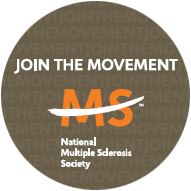"Cybertooth" for patients may replace pills
Thu Apr 19, 2007 11:05AM EDT
By Corinne Heller
TEL AVIV (Reuters) - A "cybertooth" that dispenses medicine to chronic patients may replace pills and injections for those who have a hard time remembering to take their pills, researchers say.
The European Union is funding the Intellidrug project to develop a cybernetic oral device that attaches to a tooth and administers a dosage programmed by a patient's doctor.
"The device is going to be crucial, first of all for patients who have disabilities in remembering -- like Alzheimer's patients," said Ben Z. Beiski, one of the developers, at Assuta Medical Centre in Tel Aviv.
"Rather than having a nurse running up to them and reminding them to take the pill, we have a device that will do it automatically," he said.
Beiski said the method would also be ideal for people who take medication to treat asthma attacks, especially those who suffer from them during the night.
"The software (is) programmed to deliver the drug at any time that you like".
A doctor would also program into a remote control information such as when the drug should be administered, and the patient's age, weight and medical history.
The device can be fixed in a patient's mouth, either as an attachment, or type of crown, to a tooth or as an implant.
When the time comes to administer the medicine, a panel on the device opens and releases the programmed dosage into the back of the patient's mouth, where it would mix with saliva and enter the bloodstream.
SOME DRUGS INCOMPATIBLE
The method has several disadvantages. Any foreign object placed inside the body could be prone to infection. Also, some drugs are incompatible with the device.
The oral device joins other medical methods of "slow-release", such as some capsules and injections, which release chemicals slowly to minimize side-effects.
"A slow-release system is a good thing," said Hebrew University professor Yoram Altschuler, an expert in pharmacology and oral drug delivery systems. "But some medicines cannot be packaged or formulated chemically for slow-release".
Alcohol, for example, naturally takes less than an hour to absorb into a person's body, he said.
The device can contain up to several weeks of doses of most drugs and administer more than one type of medicine, Beiski said.
t transmits to a remote receiver information on when it is about to go empty and needs to be replaced.
Beiski said he and colleague Andy Wolff, a dentist and expert in oral medicine, are planning to conduct clinical trials, along with scientists in Europe, in three months. They hope to market the device within three years, he said.
Tests of the device conducted on pigs months ago proved successful. High levels of the drugs that were given were found in their blood and the medicine was distributed evenly, he said.
Beiski said researchers also took into account that a patient could accidentally swallow the device.
"We decided to put the drug itself in a sort of protective matrix, so even if (the device is) swallowed once, the drug will be released at a slow rate (and) not be dangerous for the patient," Beiski said.
Assuta is a private hospital that also conducts research with counterparts abroad. The developers have not yet reached the stage of deciding how to market the product and are waiting for the human trials.
Subscribe to:
Post Comments (Atom)

No comments:
Post a Comment